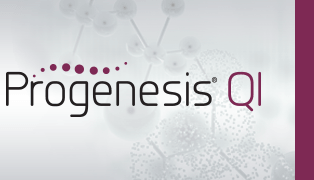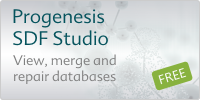What's the significance of accepting identifications?
Identifying compounds is often the goal of qualitative analysis, but accepted identifications in Progenesis QI are also helpful in several distinct areas:
Adducted form and neutral mass derivation
When a compound has been successfully deconvoluted, its neutral mass and adducted forms are known. Otherwise, when only a single m/z value is available and the adduct status of the compound is unclear, the search methods will consider the m/z value multiple times, each time treating it as if it was derived from a different adduct, calculating the corresponding neutral mass and then searching with that mass. If such a search yields some identifications and one of those identifications is accepted, it defines the compound's adduct and, consequently, its neutral mass.

Compound validation view before (left) and after (right) accepting an identfication.
Pathway analysis tools export
Typically, only accepted identifications are exported to pathway analysis tools. This is the default and recommended option.
The other option—to export all possible identifications for your compounds—is provided only as a means to gather information on the pathways with which a compound's putative compound IDs are associated. This information might then be used to rule out some of those putative IDs. However, as exporting multiple IDs for a single compound would skew, for example, any over-representation analysis, we strongly advise against doing this routinely and suggest it's done only with a limited number of compounds (using a tag filter). For meaningful pathways analysis, you should only ever export a single ID per compound, that being the accepted ID.

Choice presented in the pathway analysis tools export dialog.
Fragment database and additional compound properties export
To create your own fragment database or to create your own additional compound properties file you first need to accept some identifications, as they contribute to the compound data that is exported in both of these cases.






